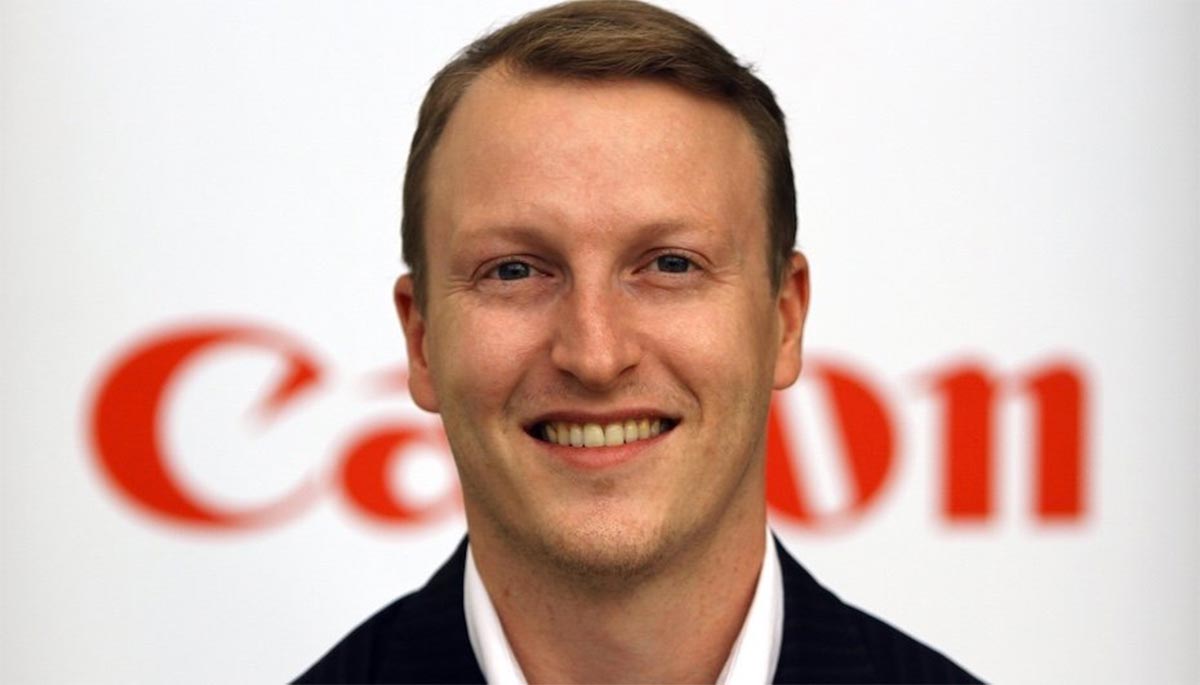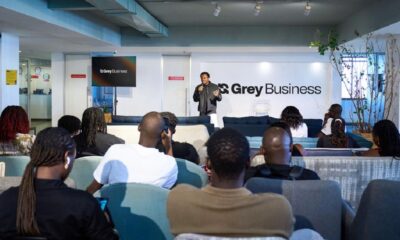Remanufacturing – a process that delivers better quality products than resale or simple refurbishment, while being more efficient and economically practical than recycling in many situations
DUBAI, United Arab Emirates, June 5, 2022/ — By Andy Tomkins, Canon’s EMEA Sustainability Engagement Manager (www.Canon-CNA.com).
We are all making significant changes to the way we live so that we can reduce our environmental impact. The products we use, how we travel, and even what we eat are all decisions that need to be made with sustainability in mind. As we celebrate World Environment Day, we need to deepen public awareness of the need to preserve and enhance the environment.
While as individuals we should all be doing our bit, change, of course, largely needs to be driven by governments and organisations. Thanks to the Green Deal, in 2019 individual nation states and the business operating within them are now obliged to step up in the fight against climate change and meet the EU’s pledge of becoming the first carbon neutral continent by 2050.
From a business perspective, there’s a vast number of ways and new approaches that can be used to work towards this goal. And of course, the industry in which a company operates in will also go some way in determining the areas of investment, research and innovation they will focus on to lower their carbon emissions in the quest of becoming a climate-neutral society.
However, one of the simplest approaches has been defined by the phrase ‘reduce, reuse, recycle’. As a theoretical hierarchy, it’s easily applied to both consumer habits and business operations. Reduce actions that negatively impact the environment if you can. If you can’t, then look at how you could reuse products or materials. Failing that, recycle as much as you can to ensure nothing goes to waste.
Many businesses and individuals are making an active effort to reduce environmental impact, especially by aligning with the concept of the circular economy, which in some ways formalises the ‘reduce, reuse, recycle’ hierarchy. But while estimates claim that widescale adoption of circular economy practices in Europe could halve CO2 emissions by 2030 (https://bit.ly/38RVKAc), no matter how much we try to reduce our impact on the environment, or to reuse things, there will always be a demand from consumers for new, high-quality products.
While recycling can help to ensure materials from old products are being reused where possible, there’s a lot of time, money and energy that goes into recovering those materials. This is a particular challenge in the tech industry, with figures from the European Environmental Agency (https://bit.ly/3x7KVlB) showing that e-waste recycling is lagging notably behind packaging and home waste.
This missing link in the chain is remanufacturing – a process that delivers better quality products than resale or simple refurbishment, while being more efficient and economically practical than recycling in many situations. It’s an approach that innovative manufacturers are looking at closely, and if it’s scaled, could go some way to helping us make the changes we need to help the environment.
What is remanufacturing?
Buying things second hand can often be an environmentally responsible decision. It’s cheaper than buying new and is seen as good for the planet. In cases like vintage clothing, can be an important cultural choice too. When quality is the priority in a purchasing decision, second hand can often be seen as the poorer option.
This is most prevalent when it comes to tech, where performance is key. While second hand buying is still somewhat common, and refurbished products (old devices that have been slightly fixed up) go some way towards addressing the quality issue, we are generally still concerned with having something new and shiny that we know will perform optimally.
This is where remanufacturing comes in. Rather than simply taking back second-hand devices, giving them a fresh lick of paint so they live on a little bit longer, remanufacturing takes second-hand devices and rebuilds them to perform like a new product.
Remanufacturing improves upon refurbishment through its focus on performance and extensive testing which ensures that consumers are receiving what is essentially a new product, as opposed to simply extending the life of an existing one.
While the exact process differs depending on the device, the aim is to keep as much as the old device in possible while replacing key components to ensure high performance – it could involve keeping the body of an old product and replacing electrical components inside or taking out physical parts of the device that have worn down over time and need replacing.
By maintaining as much as the old device as possible, remanufacturing offers a big benefit over recycling by reducing the amount of time and energy spent on recovering and processing materials for use in the creation of new products. Combined with the high-performance on offer, it helps to satisfy consumers’ demand for new, quality technology, while limiting the impact on the environment.
Remanufacturing the future
Beyond its environmental benefits, remanufacturing also has great economic potential. It can unlock new revenue streams for businesses, reducing the costs associated with sourcing new raw materials or recycling old ones, while appealing to consumers willing to pay for products that are both environmentally friendly and high quality.
So, if this is the case, why isn’t remanufacturing more common? The print industry is leading the way, with both ink cartridges and office printers often undergoing the process, but wide-scale remanufacturing across the entire tech sector seems far off.
There are several reasons why, one of the main ones being our approach to product design. While many manufacturers have started thinking more about how they can make their products easier to recycle, most are still not considering remanufacturing.
It’s something that requires considerable planning and innovation because it goes beyond just making products recyclable or repairable – careful thought needs to be given to what parts of the product have to be made to last and what will be replaced, whether assembly can be automated, and even how products can be returned for remanufacturing. Business must be willing to invest and innovate in new manufacturing processes and operations that account for this if they are going reap the environmental and economic rewards of remanufacturing.
But perhaps the biggest challenge is that it’s poorly understood, if at all. Educating consumers on the difference between a remanufactured device and a refurbished one is key for overcoming hesitancy around purchasing ‘second hand’. At the same time, there’s a clear need for more attention and encouragement from governments and regulators to help make remanufacturing a standard industry practice.
Remanufacturing is one of many ways that we can help to build a better future for our planet, but one that businesses, governments and consumers alike should be more aware of and invested in to help it grow and succeed.
Distributed by APO Group on behalf of Canon Central and North Africa (CCNA).
SOURCE : Canon Central and North Africa (CCNA) – More News


 Business5 days ago
Business5 days ago
 Business4 days ago
Business4 days ago
 Business5 days ago
Business5 days ago
 Business5 days ago
Business5 days ago
 Events4 days ago
Events4 days ago
 Energy3 days ago
Energy3 days ago
 Energy4 days ago
Energy4 days ago
 Events4 days ago
Events4 days ago











